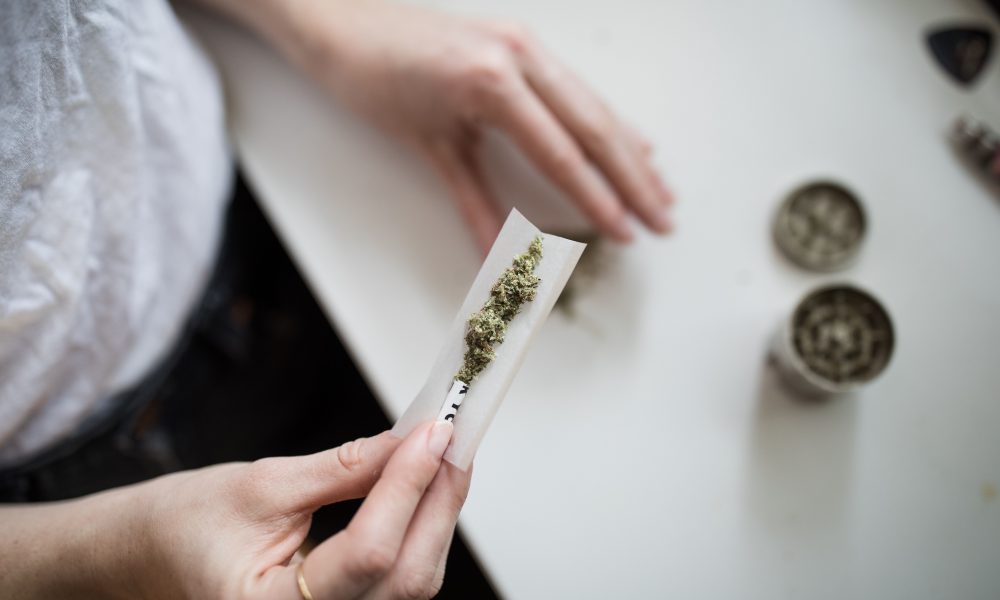The U.S. Secret Service (USSS) has updated its employment policy to be more accommodating to applicants who’ve previously used marijuana—becoming one of the latest federal agencies to adjust cannabis rules amid the state-level legalization movement.
Additionally, USSS added a policy stating that candidates who’ve used federally legal hemp-derived CBD products within one year of their application will be assessed “on a case-by-case basis by adjudicative personnel.”
Previously, the agency’s rules around past use of marijuana were age-based. A person who last consumed cannabis when they were 24 or younger could apply after one year of abstinence, for example. But for each year after 24, the ineligibility window increased. Applicants who used marijuana when they were 28 or older faced the longest period, rendered ineligible for a minimum of five years after last usage.
But last month, USSS adopted a more flexible policy, making it so candidates of any age become eligible one year after they last consumed cannabis.
“Use or purchase of marijuana includes use or purchase for medicinal purposes or use or purchase in jurisdictions (e.g., states or countries) where use or purchase is legal,” it states.
Also, the “Drug History Considerations” section has been updated to include language on hemp and CBD.
“It is recognized that an applicant may have used or purchased cannabidiol (CBD) or hemp-seed related over-the-counter products (e.g., oils, lotions, shampoos, dietary supplements, food) or any CBD or hempseed related drug or medical product approved for use by the U.S. Food an Drug Administration, in the one (1) year period prior to the date of application,” it says. “In such cases, the applicant’s eligibility for employment will be considered on a case-by-case basis by adjudicative personnel.”
There’s also a section, carried over from the earlier version of the policy, that draws an unusual distinction between “personal use” of marijuana and “recreational use. Personal use “includes use with friends and relatives (including immediate family members),” while recreational use is “defined as the sale, cultivation, or distribution, other than for personal use, not intended for income or profit.”
“The amounts sold, cultivated, or distributed will be considered,” it says. Candidates cannot have sold marijuana for either personal or recreational use within 10 years of submitting the application.
“If the applicant had instances of sale, cultivation, or distribution of marijuana beyond what is described above, the applicant is ineligible for employment with the USSS,” the agency said.
USSS’s previous age-based marijuana employment policy was itself an update that was implemented in 2017 to provide more leeway to applicants who’ve previously used cannabis, in acknowledgment of the evolving legal landscape. Before that, the previous policy made eligibility contingent on the number of times a person consumed marijuana, irrespective of age.
Meanwhile, the federal Bureau of Alcohol, Tobacco, Firearms and Explosives (ATF) also recently revised its cannabis rules for job applicants, making it so applicants who’ve grown, manufactured or sold marijuana in compliance with state laws while serving in a “position of public responsibility” will no longer be automatically disqualified.
Late last year, draft documents obtained by Marijuana Moment showed that the federal Office of Personnel Management (OPM) was proposing to replace a series of job application forms for prospective workers in a way that would treat past cannabis use much more leniently than under current policy.
The Biden administration instituted a policy in 2021 authorizing waivers to be granted to certain workers who admit to prior marijuana use, but certain lawmakers have pushed for additional reform.
For example, Rep. Jamie Raskin (D-MD) said at a congressional hearing on marijuana legalization last year that he intended to file a bill aimed at protecting federal workers from being denied security clearances over marijuana.
Last year, the nation’s largest union representing federal employees adopted a resolution in support of marijuana legalization and calling for an end to policies that penalize federal workers who use cannabis responsibly while they’re off the clock in states where it is legal.
The director of national intelligence (DNI) said in 2021 that federal employers shouldn’t outright reject security clearance applicants over past use and should use discretion when it comes to those with cannabis investments in their stock portfolios.
FBI also updated its hiring policies that year to make it so candidates are only automatically disqualified from joining the agency if they admit to having used marijuana within one year of applying. Previously, prospective employees of the agency could not have used cannabis within the past three years.
The Department of Transportation (DOT) also took a different approach to its cannabis policy in 2020, stating in a notice that it would not be testing drivers for CBD. However, DOT has more recently reiterated that the workforce it regulates is prohibited from using marijuana and will continue to be tested for THC, regardless of state cannabis policy.
Rep. Earl Blumenauer (D-OR) sent a letter to the head of DOT last year, stating that the agency’s policies on drug testing truckers and other commercial drivers for marijuana are unnecessarily costing people their jobs and contributing to supply chain issues.
The Environment Protection Agency (EPA) also emphasized to its workers that they are prohibited from using marijuana—or directly investing in the industry—no matter the state law or changes in “social norms” around cannabis.
While the Biden administration did institute a waiver policy meant to provide discretion as it relates to federal employment and past cannabis use, it’s come under fire from advocates following early reports that the White House fired or otherwise punished dozens of staffers who were honest about their history with marijuana.
Then-White House Press Secretary Jen Psaki attempted to minimize the fallout, without much success, and her office released a statement in 2021 stipulating that nobody was fired for “marijuana usage from years ago,” nor has anyone been terminated “due to casual or infrequent use during the prior 12 months.”
Minnesota Senate Approves Marijuana Legalization Bill Days After House Companion Passes
Read the full article here









